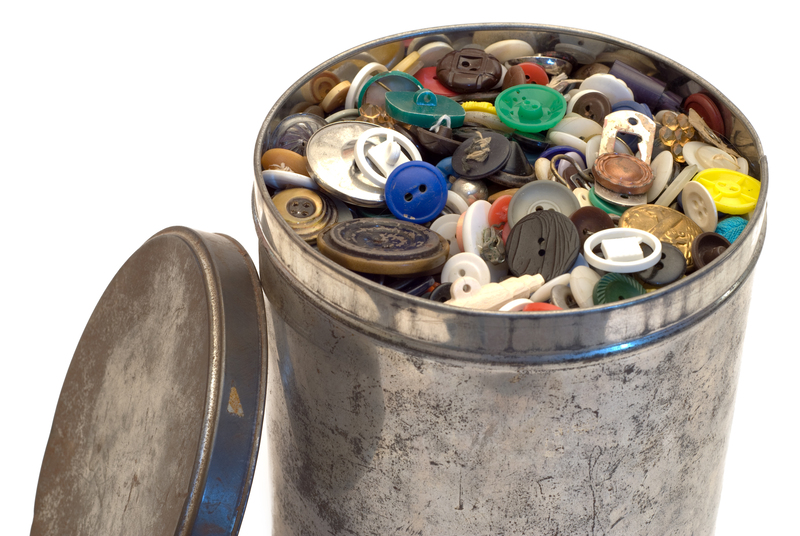Economical Solutions for Bulky Waste Items You Need to Know
When it comes to bulky waste items, finding sustainable and budget-friendly disposal solutions can be challenging. Whether you're dealing with old furniture, large appliances, or yard debris, making smart disposal choices can save you money and help protect the environment.
In this comprehensive guide, we'll explore the most economical solutions for bulky waste items, providing actionable tips and insights every property owner, tenant, or business should know.

Understanding Bulky Waste and Its Challenges
Bulky waste, also known as large item waste or bulk trash, includes items too large for regular household trash bins and municipal waste collection. Common examples of bulky waste are:
- Sofas, armchairs, and tables
- Mattresses and bed frames
- White goods (refrigerators, stoves, washing machines)
- Exercise equipment
- Carpets and rugs
- Garden waste and tree limbs
- Large amounts of construction debris
Disposing of such large items can be expensive if handled improperly. Many municipalities impose extra charges or have limited collection days, leading to overspending or illegal dumping.
Why Economical Bulk Waste Disposal Matters
Before diving into affordable solutions for bulky waste items, it is important to understand why economical disposal matters:
- Cost savings: Responsible, budget-conscious removals prevent overspending on unnecessary fees.
- Environmental impact: Reducing landfill reliance lowers pollution and conserves resources.
- Legal compliance: Correct disposal avoids fines and legal trouble.
- Community health: Prevents illegal dumping and enhances urban cleanliness.
Top Economical Solutions for Bulky Waste Item Disposal
1. Municipal Bulk Waste Collection Programs
Many cities and towns offer special bulk waste pickup or "large item collection" services. These programs are often included in your taxes or utility fees, making them one of the most cost-effective options.
- Schedule a pickup: Check your city's website or call the waste management office to arrange collection.
- Know the rules: There may be size and weight limits, set-out times, or restrictions on certain material types.
- Annual events: Some towns hold "large trash day" events for free or discounted drop-off.
2. Drop-Off Centers and Transfer Stations
Most regions have transfer stations or landfill drop-off points for large discarded items. These facilities charge less than private hauling services, and occasionally, your local government will sponsor free tip days.
- Fees: Charges are typically by weight, volume, or per item.
- Accessibility: Drop-off centers are ideal if you have transportation and only a few items to dispose of.
3. Donation and Reuse
One of the most affordable solutions for bulky waste items is to avoid disposal altogether by donating or reusing them. This sustainable option benefits those in need and diverts waste from landfills.
- Charity pickups: Organizations like Goodwill, Salvation Army, or Habitat for Humanity often collect usable furniture and appliances for free.
- Online marketplaces: List items on platforms such as Craigslist, Facebook Marketplace, or Freecycle for free removal by interested parties.
- Repurpose: Get creative--turn old beds into benches or storage racks. Upcycling extends the life of items and saves you money.
4. Hire a Junk Removal Service--the Smart Way
If municipal options aren't available, professional junk removal is a convenient but typically costlier choice. Still, you can minimize the expense:
- Get multiple quotes: Compare rates from several local companies. Many offer first-time customer discounts.
- Share the service: Team up with neighbors for a group pickup on the same day to split costs.
- Ask about recycling: Some services offer discounts if you separate recyclable and donatable items.
5. Do-It-Yourself Solutions
When possible, a self-managed approach is the most economical way to handle bulky waste:
- Break down items: Disassemble large furniture or appliances to fit them in your regular trash or sell usable components.
- Borrow or rent a truck: Organize a single trip to a landfill or recycling center instead of multiple hauls.
- Community dumpsters: Some neighborhoods organize joint dumpster renting for large clean-up projects, reducing costs per household.
6. Curbside Junk Days and Community Cleanup Events
Many municipalities sponsor community-wide bulky item collection days several times a year, allowing you to dispose of large items for free or at a reduced cost.
- Know the schedule: Check your city calendar for upcoming events.
- Participate early: Some events work on a first-come, first-served basis with item limits.
- Volunteer: Offering to help may qualify you for additional disposal privileges or discounts.
Tips to Make Bulky Waste Disposal Even More Affordable
- Plan ahead: If you know a home renovation or move is coming, start researching local options early.
- Consolidate waste: Try to dispose of all large items at once to save money on fees.
- Sort and separate: Remove hazardous materials and sort recyclables to avoid surcharges.
- Check for rebates: Some cities offer vouchers or rebates for refrigerator recycling or e-waste disposal.
- Share with neighbors: Collaborate with your community to organize group pickups or recycling days, splitting transportation and dumping costs.
Environmental Benefits and Compliance
*Choosing the most cost-effective solutions for bulky waste management is eco-friendly, too!* Here's how:
- Reduces landfill use: Donations and recycling prevent unnecessary trash build-up.
- Encourages responsible disposal: Lessens illegal dumping, keeping public spaces cleaner.
- Protects resources: Repurposing and recycling save raw materials and reduce greenhouse emissions.
Don't Forget Local Laws
Every municipality has unique regulations regarding large item disposal. Always check your city or county guidelines to:
- Verify accepted items: Some locations restrict electronics, chemicals, or tires.
- Preserve curb appeal: Avoid setting out large items too early, which can result in warnings or fines.
- Use official services: Avoid unlicensed haulers, as they may illegally dump your waste, potentially creating liability for you.
Innovative & Green Alternatives for Bulky Waste
Beyond traditional disposal, there are innovative and sustainable alternatives to consider, especially when seeking budget-friendly ways to deal with bulky refuse:
- Furniture banks: Many cities now support nonprofits dedicated to redistributing gently used furniture to families in need.
- Make art: Upcycling isn't limited to function--turn discarded items into garden art or decorative pieces.
- Peer-to-peer sharing: Apps and websites allow you to rent or give away items within your local community, eliminating disposal costs entirely.
What to Avoid With Bulky Waste
Disposing of large waste items improperly is costly and harmful. Avoid:
- Illegal dumping: It's environmentally destructive and punishable by heavy fines.
- Burning non-organics: Never burn furniture, mattresses, or plastics; toxic fumes risk your health and safety.
- Hiring unlicensed haulers: Always use reputable services for peace of mind and compliance.
The Role of Technology in Bulky Waste Management
Technology is transforming bulky trash disposal and access to economical solutions:
- Scheduling apps: Many waste management companies now offer booking and payment through mobile apps, saving consumers time and sometimes offering discounts.
- Smart bins and containers: Sensors can alert waste collectors when community bins are full, streamlining bulk pickups and reducing overflow issues.
- Tracking and reporting: Online platforms let citizens report illegal dumping or request local collection, improving municipal response times.

Frequently Asked Questions About Cost-Effective Bulky Waste Removal
What is considered a bulky waste item?
Bulky waste refers to large items that don't fit standard bins, like sofas, mattresses, refrigerators, and certain construction waste. Always check your local program's definition.
How can I save money when disposing of large items?
Use free municipal pickups, donate reusable goods, rent shared dumpsters with neighbors, or transport waste yourself to a local drop-off center.
Are there any free pickup services for bulky items?
Charity organizations often offer free pickup for items in good condition, and many cities organize periodic free bulk trash collection. Always call ahead to verify eligibility.
Can I recycle bulky waste?
Absolutely--metal appliances, wood furniture, and mattresses can often be recycled if brought to appropriate centers or through municipal partnerships.
What if I have hazardous items?
Never combine hazardous waste with bulky items. Look for designated household hazardous waste collection sites or special city events.
Conclusion: Smart & Economical Large Item Disposal Is Possible
Disposing of bulky waste items doesn't have to empty your wallet or harm the environment. By making informed choices--using municipal services, donating, reusing, organizing community efforts, and leveraging technology--you'll discover many affordable solutions for bulky item disposal that benefit your household, community, and planet.
Keep this guide handy and spread the word about responsible, budget-friendly disposal. Clean spaces and a healthier environment are within reach, with just a bit of planning and collaboration!
